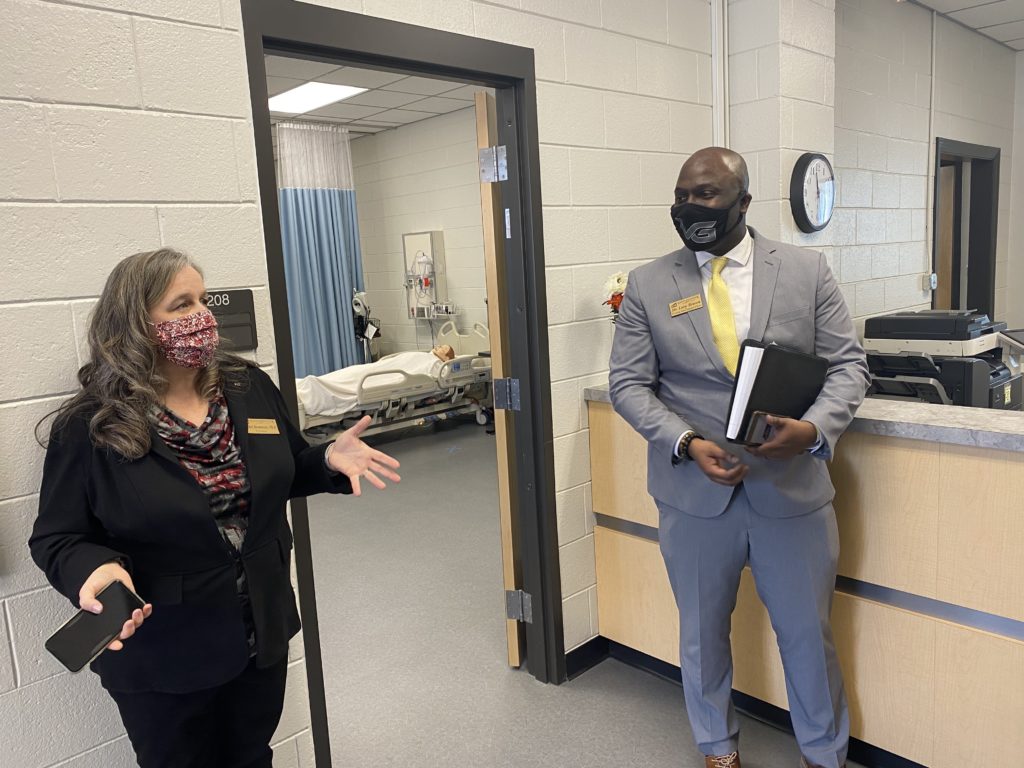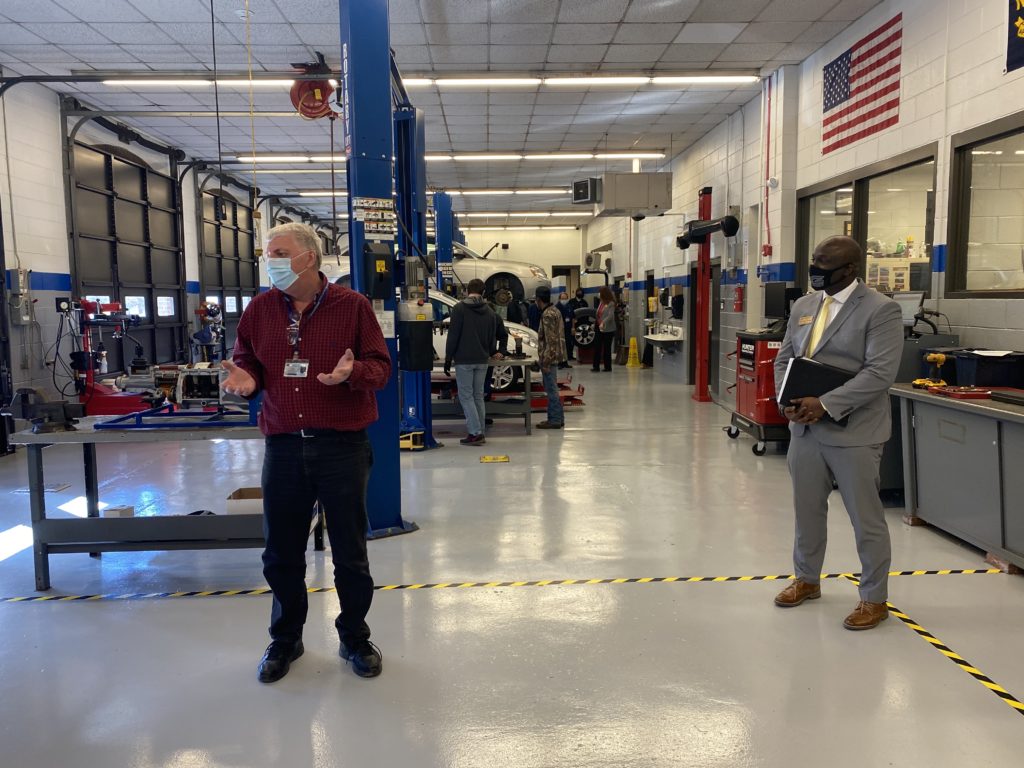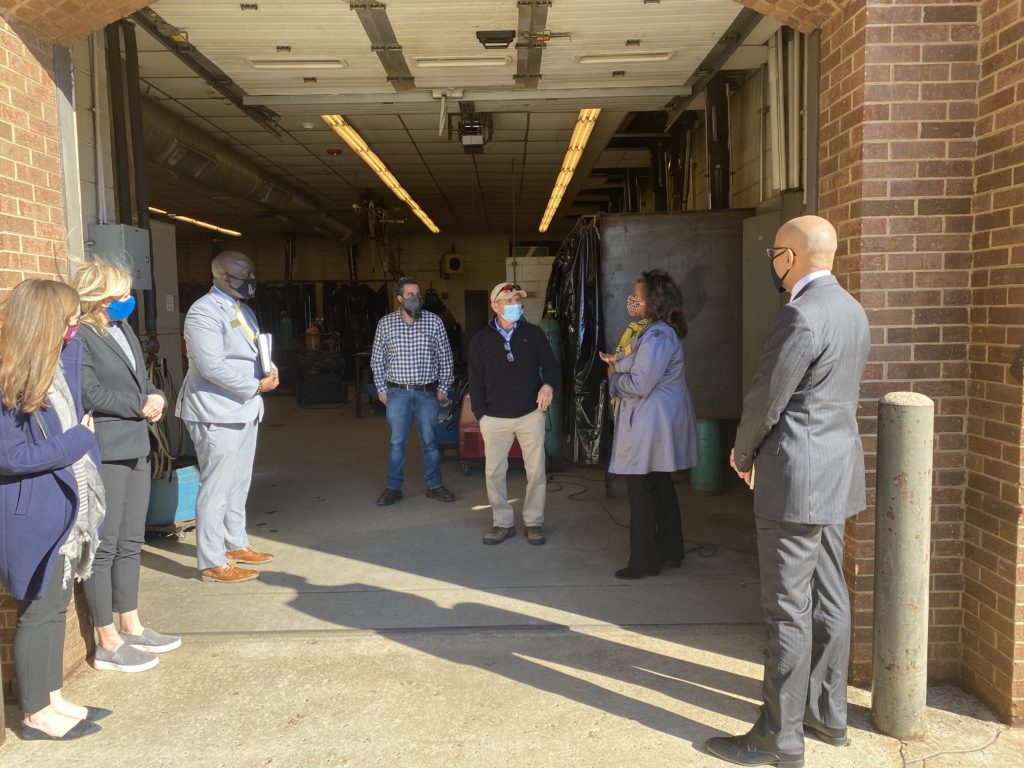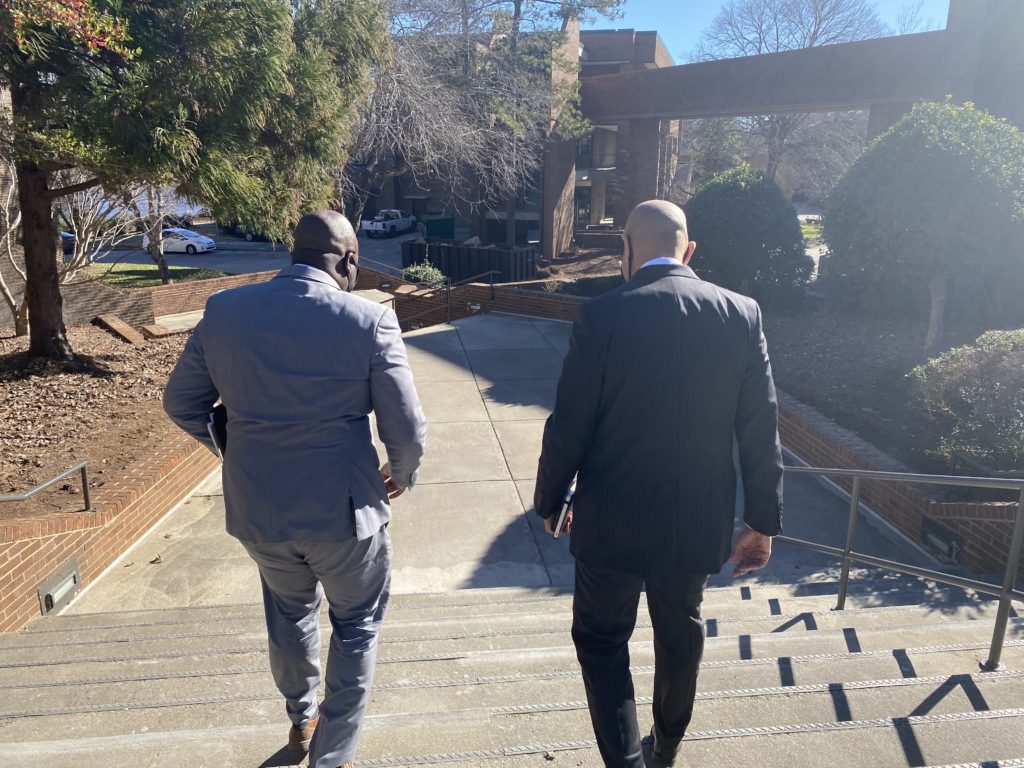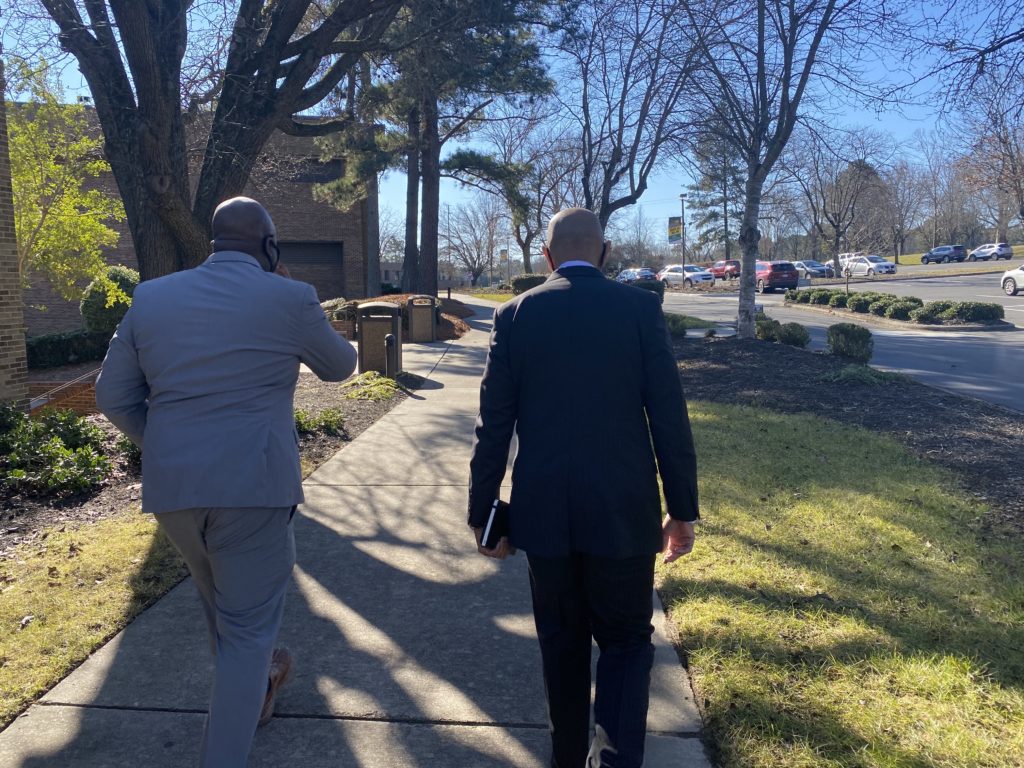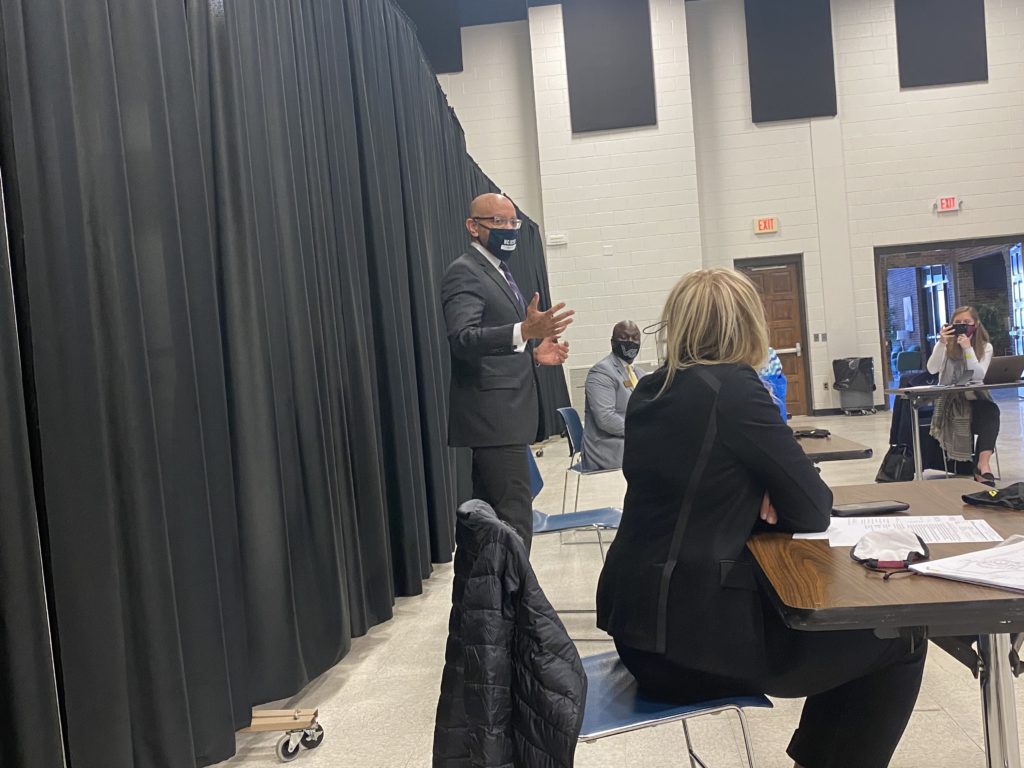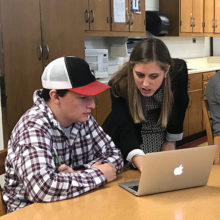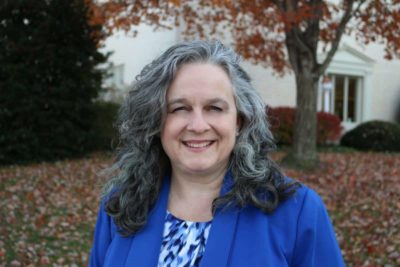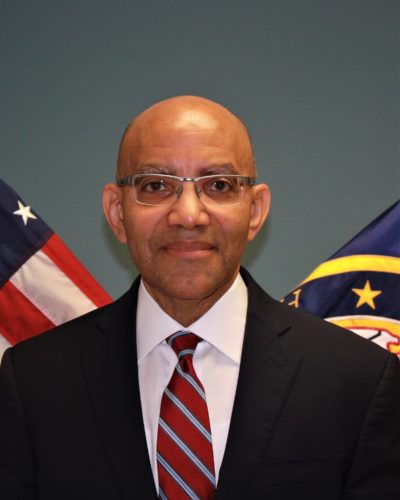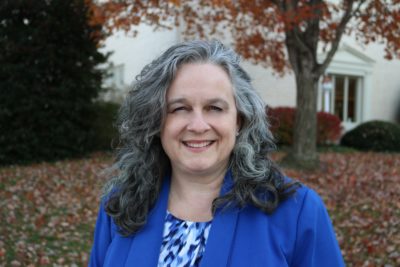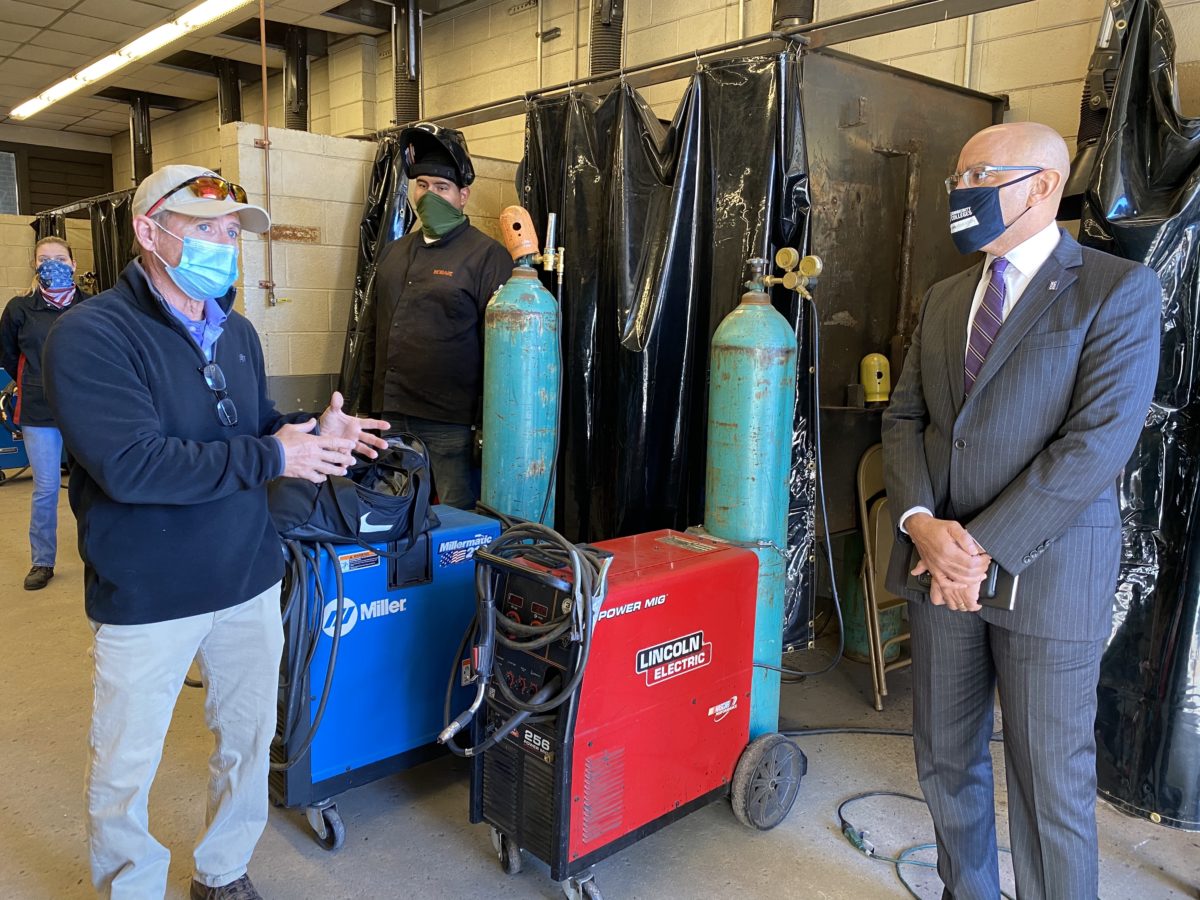
In his second week as president of the North Carolina Community College System, Thomas Stith visited Vance-Granville Community College (VGCC). Stith was joined by MC Belk Pilon from the John M. Belk Endowment and Scott Hamilton from the Golden LEAF Foundation, among others.
VGCC President Rachel Desmarais and members of her board and leadership team spoke to the college’s role as an engine for economic mobility; new efforts to focus on diversity, equity, inclusion, and belonging; and the importance of partnerships.
Vance-Granville Community College’s main campus is located in Henderson, about an hour drive north of Raleigh. The college serves four counties: Franklin, Granville, Vance, and Warren. Twenty years ago, the main industry in the area was textile manufacturing, Desmarais said, but those jobs have largely disappeared.
“We’ve had to reform ourselves and reinvent ourselves,” Board of Trustee Chair Danny Wright said, highlighting the role the college plays to promote regional collaboration between the four counties.
“Government entities are proud entities,” Wright said, “sometimes looking out for themselves individually and not thinking regionally as much as they should. So, I’m proud of what this college does … I believe continuing to work collaboratively with all of the partners in our region is a way to success.”





Visit to Vance-Granville Community College. Nation Hahn/EducationNC 
Aligning programs with labor market outcomes
When Desmarais became president in 2019, one of the first things she did was order a job gap analysis study. Using regional labor market data, Desmarais and her team analyzed the available jobs in the region compared to the programs the college offered. They realized they did not offer training for one of the highest demand jobs — truck driving.
The availability of land for warehouses and their placement right on I-85 means the area, especially Vance County, is a truck driving hub, Desmarais said. When she looked at the return on investment for students, including the time and money spent on training and the earnings they could make, “It made sense to me,” she said. VGCC partnered with Caldwell Community College and Technical Institute to offer truck driver training and has seen almost 100% success with the program so far.
In a recent interview, Desmarais spoke extensively on the college’s focus on labor market outcomes when it comes to programmatic decisions. Hear more about their work in the Awake58 podcast below.
Using an equity lens
In addition to looking at labor market outcomes, Desmarais and her team are also looking at the data with an equity lens. “If I have a program where I have all white males and no one else and it’s a high-wage earning job, and I have another program … with all women of color with low-paying positions, that’s an equity issue,” Desmarais said.
Sparked by the protests this summer, VGCC created a Diversity, Equity, Inclusion, and Belonging Council. The Council is charged with reviewing the college’s policies, processes, and procedures to ensure they are equitable and promote students’ feelings of inclusion and belonging.
“This is a heavy, heavy lift,” Desmarais said. “For this community, for this board, because we’re so polite and we don’t want to talk about things.” Of their four-county service area, Desmarais said, two counties are slightly red and two are slightly blue.
“We have to work together, and we have to get along,” Desmarais said, praising her board and their interest in examining the college’s role in creating a more equitable society.
Stith said his vision for the North Carolina community college system is to be a leader in diversity, equity, and inclusion. “We’re seeing some concerns now in our enrollment figures,” he said in a recent interview, “but I want to be a national model for diversity and inclusion within our system and providing opportunities across the board.” Hear the rest of the interview in the podcast below.
The importance of partnerships
At the end of the visit, Vance County Schools Superintendent Anthony Jackson joined the group to discuss partnerships between K-12 districts and community colleges. While it can be difficult working with four separate school systems across the college’s service area, Desmarais said, it is a necessity.
“We can no longer complain of the students we are getting,” she said. “We have to be ready for the students we have. That is what it means to be an open access college.”
Jackson and Desmarais shared how they have enhanced the K-12 and community college partnership over the past two years. Desmarais gave one example of the college deciding to turn over one of their new buildings to house an early college. Jackson shared that starting five years ago, Vance County Schools now requires all of their seniors to complete an application to VGCC.
“The first year,” Jackson said, “we had students who got accepted, and I remember talking to them, and they were like, ‘I got into college.'”
“We found out that they had no idea what they could do,” Jackson continued.
To build both proximity and presence with VGCC, Jackson moved the district’s nursing fundamentals program to the college after realizing that students were not going on to complete their full credentials at VGCC.
Jackson also spoke about the need to partner with businesses to better understand the skills students need to be successful. And this partnership should not start at the moment businesses need employees, Jackson said. It should start years before so the elementary, middle, and high schools can build those skills in students.
“As a K-12 person, I will say, honestly, tell me what you need and I promise you we can build the structure,” Jackson said. “But don’t tell me after I cook the meal that you don’t like mac and cheese.”
The conversations emphasized the importance of establishing partnerships not just between K-12 and community colleges but between business, industry, and economic development stakeholders throughout the region. This was one of the key takeaways of the visit for both Stith and MC Belk Pilon.
“The common theme was we just need to break down silos and have conversations with each other [about] where the systems connect and where they disconnect. Because they are all wanting to achieve the same thing, and that’s to hit myFutureNC’s two million by 2030 college attainment goal.”
MC Belk Pilon
Learn more about the Vance-Granville service area
Below you will find the myFutureNC county data sheets for the Vance-Granville Community College service area.
Editor’s note: The John M Belk Endowment supports the work of EducationNC.

